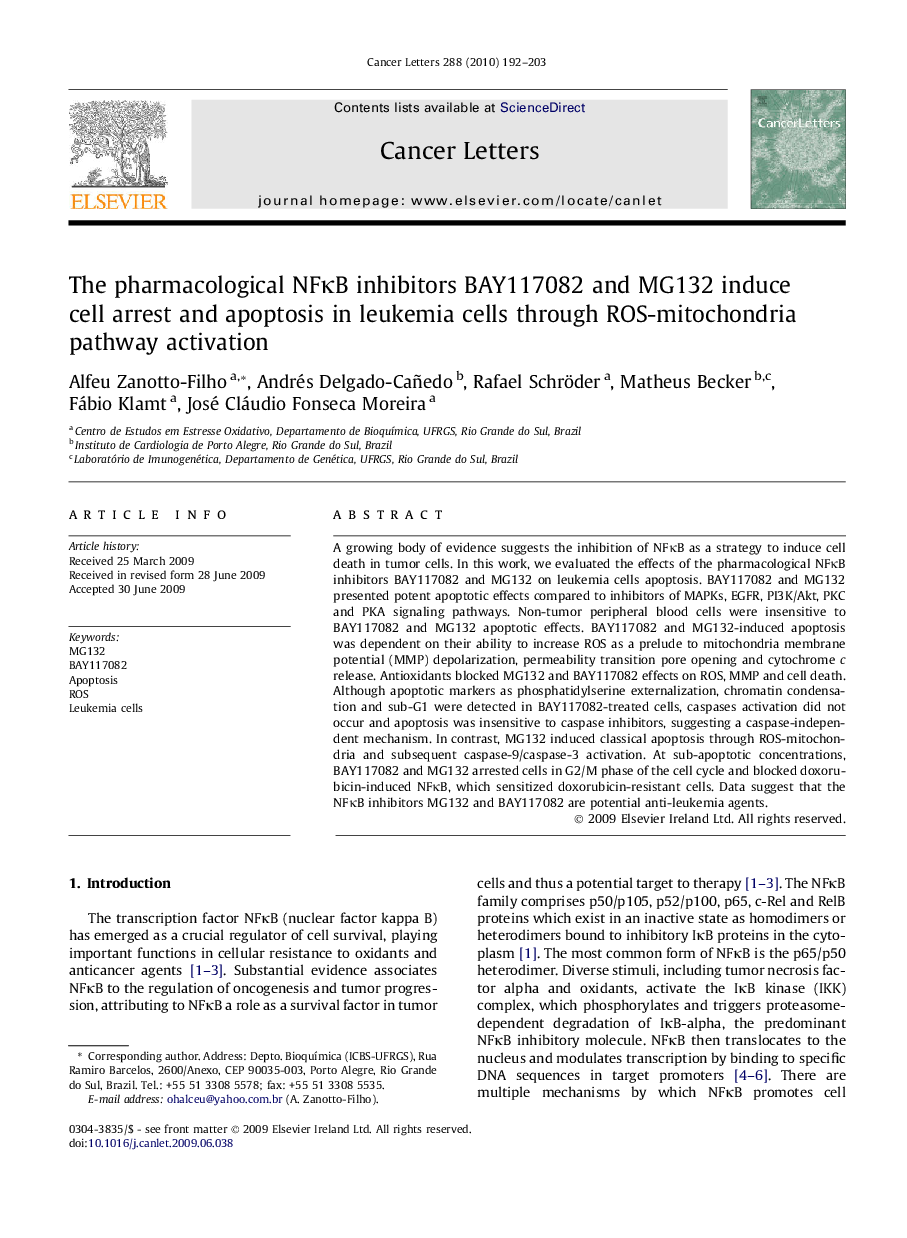| Article ID | Journal | Published Year | Pages | File Type |
|---|---|---|---|---|
| 2116487 | Cancer Letters | 2010 | 12 Pages |
A growing body of evidence suggests the inhibition of NFκB as a strategy to induce cell death in tumor cells. In this work, we evaluated the effects of the pharmacological NFκB inhibitors BAY117082 and MG132 on leukemia cells apoptosis. BAY117082 and MG132 presented potent apoptotic effects compared to inhibitors of MAPKs, EGFR, PI3K/Akt, PKC and PKA signaling pathways. Non-tumor peripheral blood cells were insensitive to BAY117082 and MG132 apoptotic effects. BAY117082 and MG132-induced apoptosis was dependent on their ability to increase ROS as a prelude to mitochondria membrane potential (MMP) depolarization, permeability transition pore opening and cytochrome c release. Antioxidants blocked MG132 and BAY117082 effects on ROS, MMP and cell death. Although apoptotic markers as phosphatidylserine externalization, chromatin condensation and sub-G1 were detected in BAY117082-treated cells, caspases activation did not occur and apoptosis was insensitive to caspase inhibitors, suggesting a caspase-independent mechanism. In contrast, MG132 induced classical apoptosis through ROS-mitochondria and subsequent caspase-9/caspase-3 activation. At sub-apoptotic concentrations, BAY117082 and MG132 arrested cells in G2/M phase of the cell cycle and blocked doxorubicin-induced NFκB, which sensitized doxorubicin-resistant cells. Data suggest that the NFκB inhibitors MG132 and BAY117082 are potential anti-leukemia agents.
